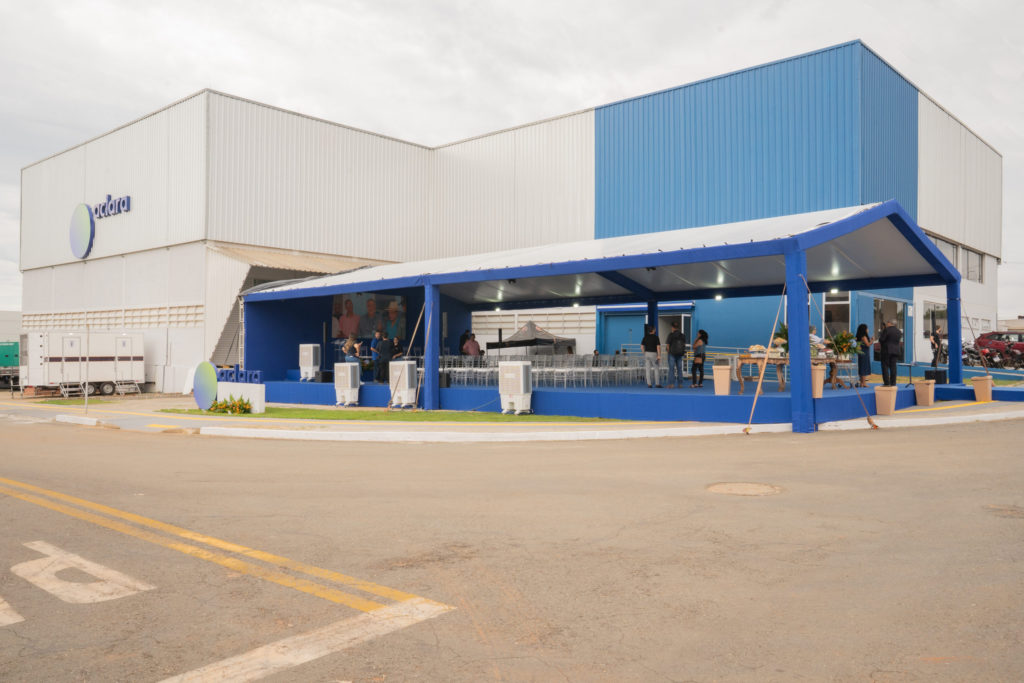Aclara opens heavy rare earths pilot plant in Brazil
Posted Under Commodity News, On 28-04-2025
Source: mining.com
Aclara Resources (TSX: ARA) announced on Monday the official inauguration of its semi-industrial heavy rare earth pilot plant in Brazil, which it will use to test the production of dysprosium and terbium from ionic clay extracted from its Carina project in Goiás state.
The ceremony was attended by key government authorities from the State of Goiás and the Municipality of Nova Roma, as well as representatives from federal agencies and international embassies.
The government officials expressed support for the project’s streamlined development, recognizing its strategic potential to position Goiás as a global center for sustainable production of heavy rare earths, particularly dysprosium and terbium, Aclara said in a press release.
“Our heavy rare earth production, dysprosium and terbium, will be essential for establishing a reliable and alternative supply chain for the permanent magnets used in electric vehicles, wind turbines, robotics and other advanced technologies,” CEO Ramón Barúa said.
Barúa also said the Carina project’s future production of these key elements “will enable the fabrication of approximately five million electric vehicles per year”, which he said would position Goiás at the forefront in the global energy transition.
At the Aparecida de Goiânia pilot plant, the company expects to process approximately 200 tonnes of clay material from the Carina project, resulting in an estimated production of 150 kg of heavy rare earth carbonates.
According to the company, the process flowsheet incorporated several optimizations that focused on increasing efficiency, reducing costs and improving the purity of the final product. This optimized approach builds on its previous piloting efforts in Chile, where it processed 25 tonnes of clay from the Carina project.
Aclara Resources’ stock traded flat on Monday morning at C$0.75 apiece, for a market capitalization of $163.3 million.
“With an estimated investment of R$2.8 billion ($500 million), the project will create thousands of jobs and position our state as a leader in the production of rare earths – strategic minerals for the future of clean technologies such as electric vehicles and wind energy,” Daniel Vilela, Vice Governor of the State of Goiás, said.
Production in 2028
The facility represents a key step in advancing the Carina project towards production in 2028. The project is currently in its permitting stage, with Aclara aiming to submit its environmental impact assessment mid-2025. Later in the year, the company plans to complete a pre-feasibility study, followed by feasibility study in 2026.
To fund these works, Aclara raised $25 million via a private placement last year.
The Carina project currently has an estimated resource of about 298 million tonnes grading 1,452 parts per million TREO (total rare earth oxides), all in the inferred category. This would support annual production of 191 tonnes of dysprosium and terbium, representing about 13% of China’s official production in 2023, Aclara estimates.
The company is also looking to build a rare earths separation plant in the United States. This facility will process mixed rare earth carbonates sourced from its mineral resource projects, separating them into pure individual rare earth oxides.
Additionally, through a joint venture with Chile’s CAP, Alcara is advancing its alloy-making capabilities to convert these refined oxides into the alloys needed for fabricating permanent magnets.

